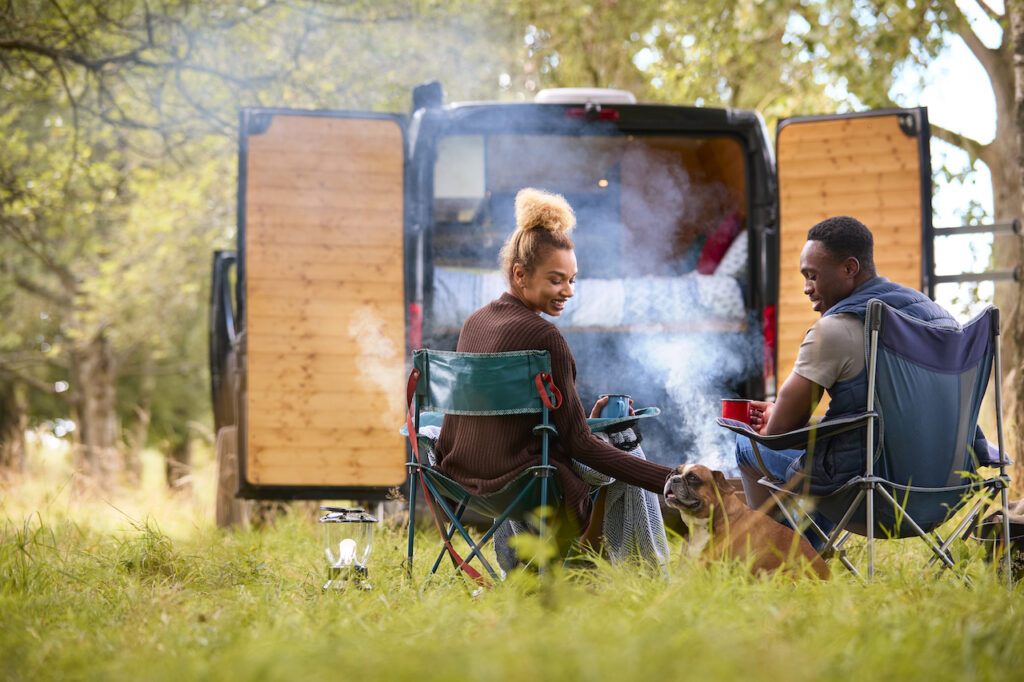The Do’s and Don’ts of Truck Camping

Truck camping is a blend of adventure, simplicity, and ruggedness that calls to the wild spirit in all of us. Whether you’re looking to save on hotel costs during road trips, or you simply want to immerse yourself in nature without the hassle of traditional camping, truck camping can be an incredibly rewarding experience. However, there are several important factors to consider if you want to make the most of this unique form of travel. Here are the do’s and don’ts that every truck camper should know.
The Do’s
1. Do Plan Your Route and Stops
Before you even hit the road, ensure you have a detailed plan of your route and potential stops. Identify safe and legal places to park and sleep, such as truck stops, rest areas, and campgrounds. Research any designated camping spots and make reservations if necessary. Knowing your route reduces stress and keeps you safe.
2. Do Pack for Comfort and Utility
Invest in storage solutions to keep your truck organized. Use stackable containers for clothes, food, and gear. Pack the truck bed with essentials like a cooler, tent, camping stove, and water – and ensure these items are secured to avoid shifting during travel. Additionally, bring padding for a comfortable sleep; an air mattress or sleeping pad can make all the difference.
3. Do Follow Leave No Trace Principles
Truck camping, as with any outdoor activity, should adhere to ‘Leave No Trace’ principles. Respect the environment by disposing of waste properly, not disturbing wildlife, and leaving your camping spot as you found it. This ensures the natural beauty is preserved for future campers and that you abide by local regulations.
4. Do Incorporate Safety Measures
Purchase and pack a first aid kit, fire extinguisher, and emergency kit. Carry a map in case you lose cell service, and a portable charger for your devices. For longer trips, investing in a satellite messenger or Personal Locator Beacon (PLB) could be a wise decision. Always inform someone of your travel plans and check in regularly.
5. Do Opt for Stealth Camping Responsibly
Stealth camping can be an effective and low-profile way to sleep in your truck when you’re on the road. Choose safe, legal spots, such as behind RV parks, in quiet residential areas, or where overnight parking is allowed. Be discreet and keep noise to a minimum to maintain a low profile and respect the locals.
The Don’ts
1. Don’t Overload Your Truck
Trucks have weight limits, and exceeding them can lead to reduced steering and braking capacity, as well as wear and tear on mechanical components. Avoid overloading by knowing your truck’s Gross Vehicle Weight Rating (GVWR) and how much weight you’re adding with your camping gear.
2. Don’t Forget to Apply Vehicle Maintenance
Regular vehicle maintenance is critical, especially for longer trips. Ensure your brakes, tires, and suspension are in good condition to handle the extra weight and rougher terrain you may encounter. Inspect your truck’s battery, fluids, and lights before departing, and consider having a professional tuning for added peace of mind.
3. Don’t Assume Privacy
Even in remote areas, privacy is not guaranteed. Be mindful of your surroundings, especially at dawn and dusk when there’s less light. Use window covers, camp out of sight from main roads, and avoid setting up or breaking down camp in the open if privacy is a concern.
4. Don’t Cook Inside Your Truck
Cooking inside your truck can be dangerous due to fire hazards and carbon monoxide buildup. If your truck bed isn’t equipped with a kitchen setup, cook outside with a portable stove or grill. This also minimizes odors and the risk of attracting wildlife.
5. Don’t Rely Solely on GPS for Navigation
While GPS navigation is helpful, technological failures can happen, leaving you lost. Always bring a physical map and familiarize yourself with it. Apps that provide offline maps can be a good backup. Remember that GPS signal is not always reliable in mountainous or remote areas.
Truck camping is a great way to explore the outdoors and enjoy the freedom of the open road. Following these do’s and don’ts will help ensure that your truck camping trip is enjoyable, safe, and respectful to both nature and fellow travelers. Remember, preparation and common sense are your best allies when it comes to enjoying the truck camping experience.





